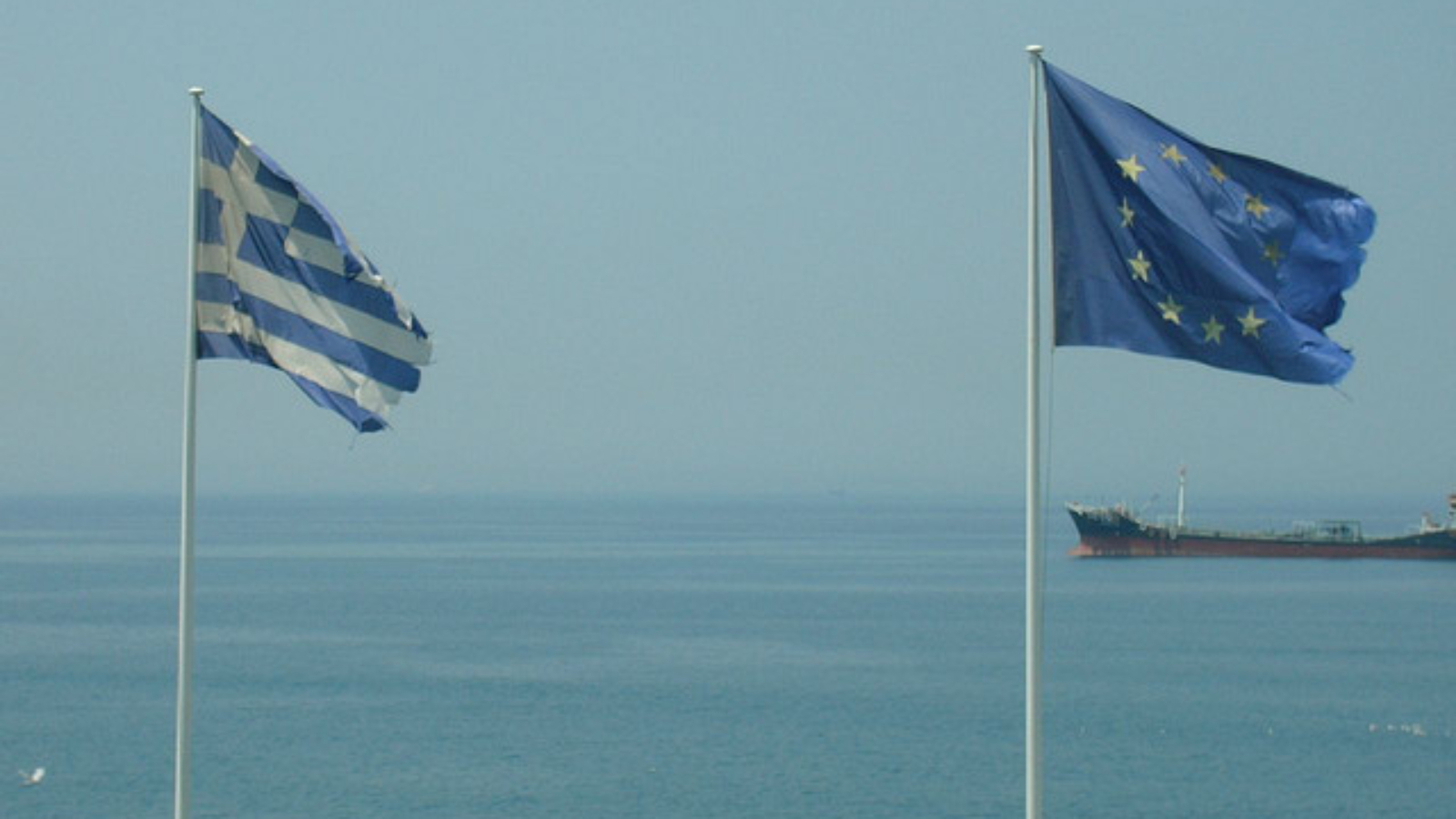By Peter Atwater
The important messages from last weekend’s summit that left Greece with an avenue toward continued membership in the eurozone have less to do with the ongoing and catastrophic economic and financial woes of Greece than they do with the plummeting social mood of Europe overall. Three very important (and decidedly negative) messages were delivered:
- Greece was forced to surrender to Germany.
- The irrevocability and irreversibility of the euro is in question. Exit is a possibility.
- There is growing north/south European divide. French/German relations are “strained.”
Whether these “messages” will prove to be truths must be left to historians. Today, Europe is acting (and reacting) to stories, not facts. Truthful or not, the stories now frame what will unfold.
So what do they foretell?
First, the end, for all intents and purposes, is here. Greece will exit the eurozone. Whether the departure is couched as temporary or not is irrelevant, Europe’s once irrevocable and irreversible currency union is now being undone by falling confidence.
The problem with last weekend’s Grexit message was that it yelled “fire” in a crowded theater. Much as the threat of bank closures triggers bank runs, the threat of a currency debasement foretells its collapse. When Greek banks reopen, citizens will rush for their money — not only because they are worried about the safety of the nation’s banks, but because they are frightened by the potential devaluation of their deposits. By their most recent actions, European policymakers turned what was already a bank run into a country run.
Based on what I see, any Greek bank reopening will be very short-lived. The rush for deposits will be far greater than what is envisioned today by policymakers.
In reaction, policymakers will again impose sharp restrictions on cash withdrawals. This action will only accelerate the growing use of alternative currencies or IOUs by Greek citizens that is already underway. With little cash available, Greeks have been forced to find means other than cash euros to fund purchases. Ironically, the more policymakers constrain the availability of euros, the more they reduce that currency’s significance.
But there is far more at stake for Europe than simply its single regional currency. As a result of falling confidence, cultural, social, and political differences are becoming more and more obvious. Due to falling social mood, sweeping generalizations, and broad stereotypes are morphing into outright prejudice and discrimination. Zero-sum thinking is taking hold as voters across the region look to blame someone else for their misfortune. As history shows repeatedly, when our confidence is weak, we believe others somehow are gaining at our expense. Punishment becomes the norm.
In the very near term, Greece will likely devolve into social and political anarchy. Confidence is catastrophically low and anxiety is soaring. While Mr. Tsipras may be able to keep control of Parliament over the next few weeks, he will have little influence with voters over unfolding events. The political pendulum is likely to swing wide — either far to the left or to the right. The status quo is unsustainable. The potential for a military coup or a sharp resurgence of the neo-Nazi Golden Dawn party should not be discounted. Athens’ heretofore peaceful protests are likely to turn especially violent.
Amid such chaos, the Greek government will struggle to introduce a new substitute currency and reopen its banks. Needless to say this will only fuel even greater levels of anxiety and anger aimed at European leaders, especially Germany.
Outside of Greece, there are worrisome developments unfolding as well. What last week’s summit made obvious is a clear and growing north/south social divide in Europe. As the mood falls further, that division will become even more pronounced as voters across both regions become more strident in their weak confidence-driven “me, here, now” behavior. At best, we will see two European currency unions. More likely, the southern periphery will scatter with nations across the Mediterranean quickly returning to their former currencies. In hindsight, Greece will appear much like Tunisia in the Arab Spring — a catalyst for a far-reaching regional revolution.
While Europe’s attention today is on Greece, the country where all eyes should be focused is France. As last week’s events made clear, when north and south Europe divide, France will find itself among the Mediterranean states. Europe’s cornerstone Berlin-Paris alliance will fall away, succumbing to the plummeting social mood.
The speed at which contagion unfolds should not be underestimated. Social mood across the periphery is very similar (and very weak) which will fuel fears of further bank closures. With the ECB unable to calm depositor fears, the next country failure may be only weeks away.
As always, I wish for none of the turmoil that I see ahead. Unfortunately, based on the last week’s messages, confidence in Europe is collapsing and the region’s financial markets are about to reflect it.
Self-interest, close physical and ethnic proximity, and short-term time preferences are dominating the behaviors I see. These are the tell-tale signs of weak underlying social mood. As a result, the lifeguards have left the beach as political leaders across northern Europe are unwilling and unable to be both Europeanist and nationalist. With falling confidence, nationalism has won out.
*****
*****
Peter Atwater is the President of Financial Insyghts, a research firm focused on the role of confidence in economic, financial, political, and social decision making.
[Photo courtesy of Elias Bizannes]
